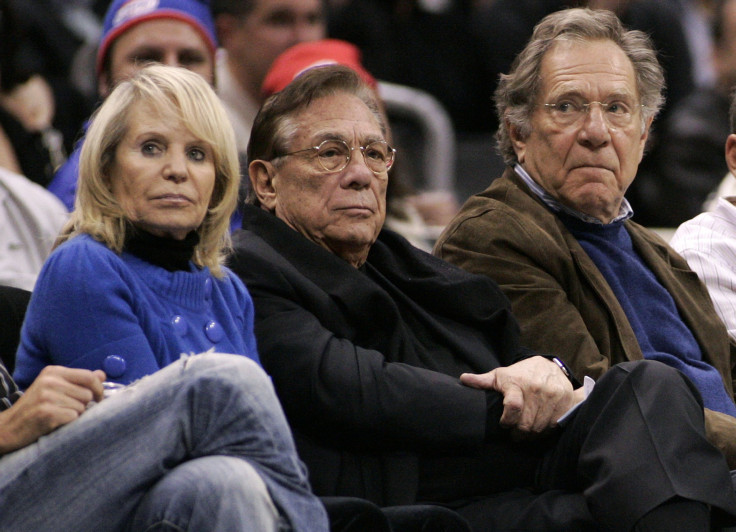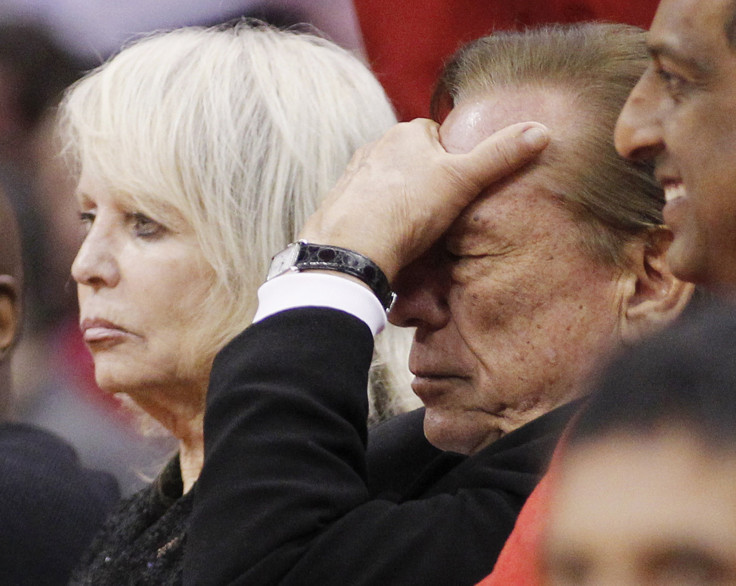Can The NBA Fire Donald Sterling? Legal Questions Surround Investigation Into Racist Rant
Clippers owner could bring antitrust claim if he’s forced to sell the team.


If the court of public opinion had force of law, Donald Sterling could no longer own the Los Angeles Clippers, not after he was allegedly caught on tape uttering some of the most blatantly offensive, racially charged remarks ever expressed by a sports professional.
But in the courts that govern American commercial life, Sterling has a better case. The NBA’s authority to force him to sell the franchise he has owned for three-plus decades is unclear to outsiders, and antitrust law is likely to give him some protection.
“The NBA must fire” Sterling, the Daily News wrote. Unfortunately for those hoping for a quick dismissal, ousting Sterling would not be as simple as firing an insubordinate employee. The 80-year-old real estate magnate may be facing enormous public backlash, but he has tenure on his side. It’s safe to say he isn’t likely to give it up without a legal fight.
At the heart of that fight will be the question of whether or not the NBA -- or its new commissioner, Adam Silver -- even has the authority to terminate Sterling against his will. The NBA constitution and bylaws are confidential, meaning any speculation about exactly what the league can legally do remains just that: speculation. But other professional sports leagues provide a guide. For instance, Major League Baseball’s constitution allows for the termination of a team owner if 75 percent of MLB owners are in agreement, and sports-law experts say it’s reasonable to assume that the NBA constitution includes similar language.
At the same time, even if 100 percent of the NBA owners agreed to boot Sterling out, it still wouldn’t necessarily be a slam dunk. “There is a chance that [he] would bring a lawsuit based on antitrust law, challenging the termination as being an illegal restraint of trade or illegal group boycott,” said Marc Edelman, an associate law professor at Baruch College’s Zicklin School of Business, who specializes in sports and antitrust law. “As a general matter, it’s illegal for a collection of businesses to reach a concerted effort to refuse to deal with a competitor.”
Edelman noted that an exception would be if the NBA could prove that its association with Sterling was somehow toxic -- that is, that the owner’s controversial reputation was damaging the league’s image, and by extension its monetary value. “The termination would have the best chance of surviving antitrust law if it can be shown that the configured relationship with Sterling would have put the entire league at risk of liability based upon purportedly continued actions and statements of racial bias,” Edelman said.
Domenic Romano, a sports and entertainment lawyer and founder of Romano Law PLLC in New York, said an antitrust claim could come down to simple lowball mathematics. The Clippers are currently valued at $575 million, according to Forbes. A fire sale at the behest of the NBA would almost certainly bring that number down, and Sterling could be entitled to damages under federal and state antitrust laws if he’s mandated or coerced into selling the team for less than it’s worth. “If it’s public knowledge that he’s forced to sell the team, then he’s going to have to sell it at low market value,” Romano said. “Prospective buyers know that he has to sell. As a result, it’s going to attract lower bids.”
Magic Johnson, the multimillionaire basketball legend and target of Sterling’s alleged rant, might be in a position to help solve the Sterling problem. Johnson called the comments a “black eye for the NBA,” and is now rumored to be eyeing the franchise with the financial backing of the Guggenheim Partners, according to Yahoo Sports. If he purchased the Clippers at their current valuation, the NBA would avoid having to pay Sterling damages. A spokesman for the financial firm declined to comment on the rumor.
What about simply kicking the Clippers out of the NBA altogether? Such a move would be unprecedented for the 68-year-old league, and Edelman, for one, thinks the idea of disbanding the team would never pass muster by virtue of the negative impact it would have on the labor market. “It would reduce the number of jobs to participate in professional basketball and thus almost certainly draw the ire of the NBA players and their respective associations,” he said.
Romano said he expects the solution to be a “political one.” At minimum, he said, there will be a fine, and likely a yearlong suspension. The wider possibility is that Sterling, as stubborn as he appears to be, will eventually come to his senses, realizing there’s no point to owning a team that no one on earth wants you to own. “Public opinion is obviously overwhelmingly against him,” Romano said. “You wonder why he would want to continue to own a team that affiliates him with public scorn and ridicule.”
Got a news tip? Email me. Follow me on Twitter @christopherzara.
© Copyright IBTimes 2025. All rights reserved.






















